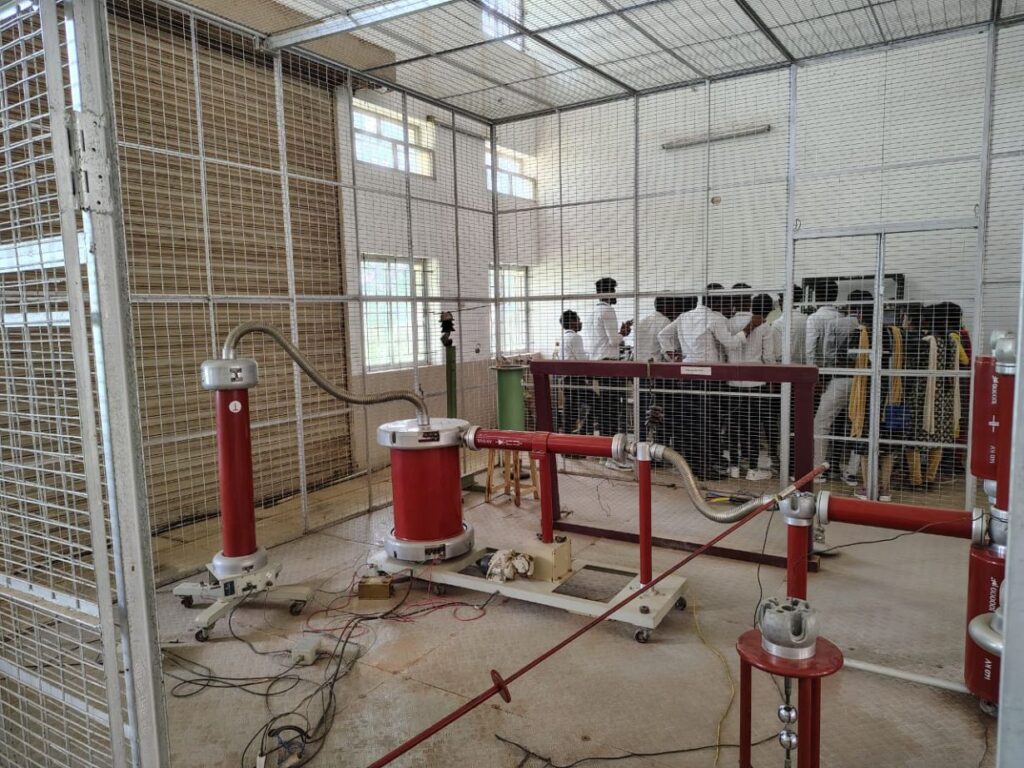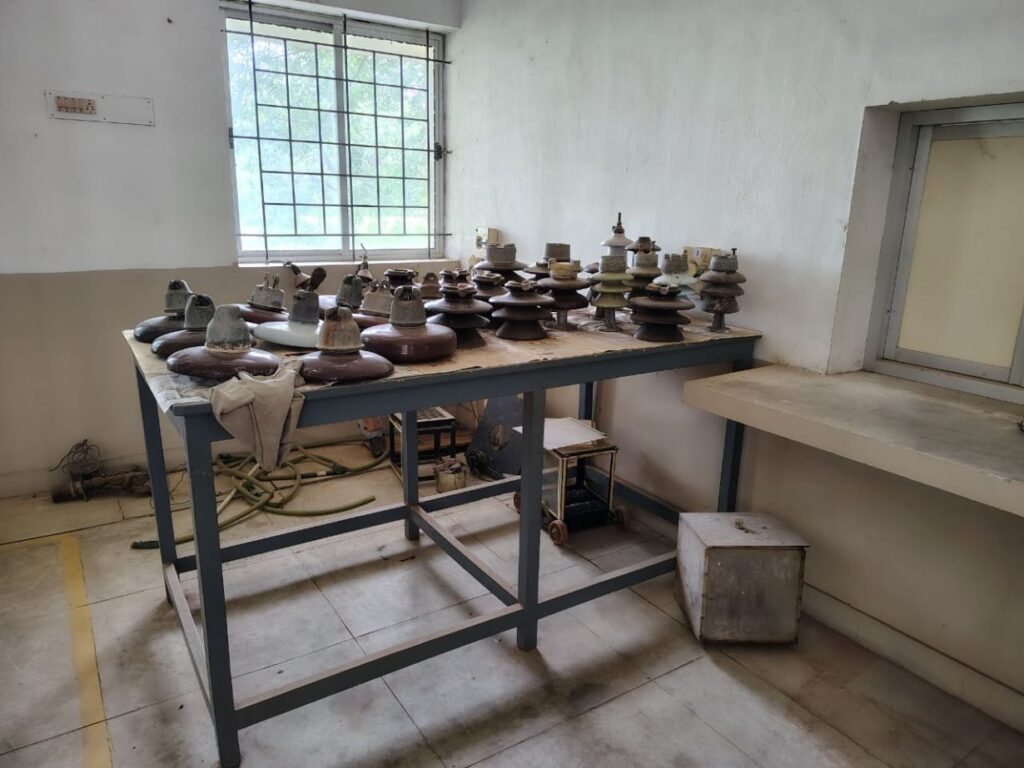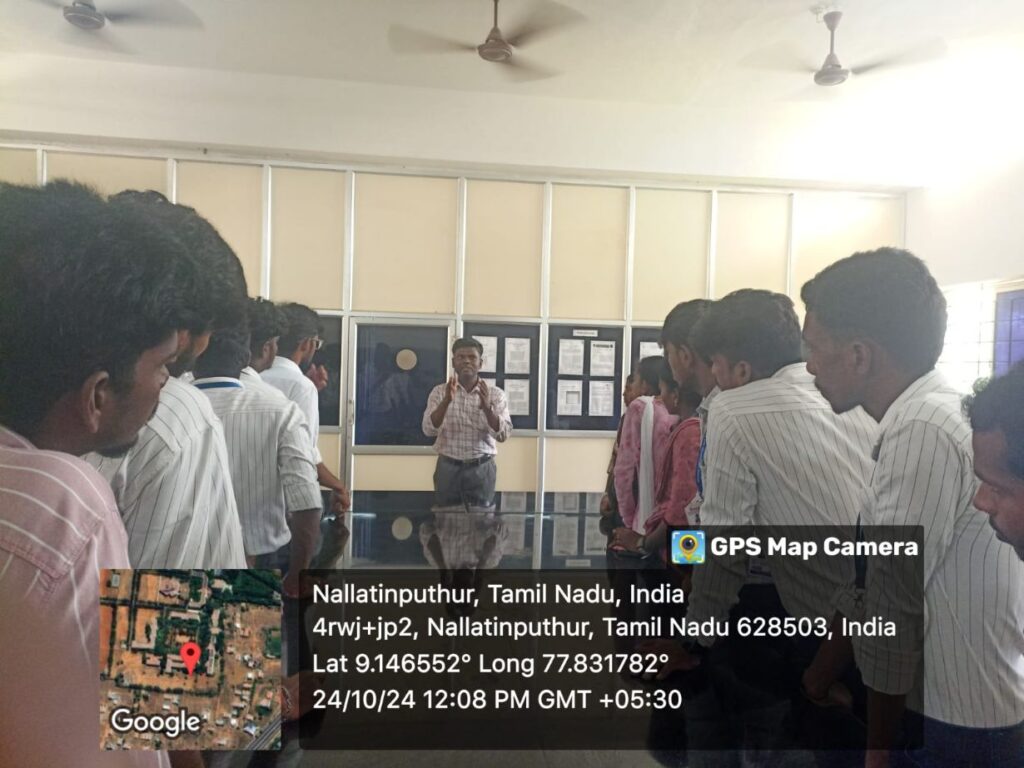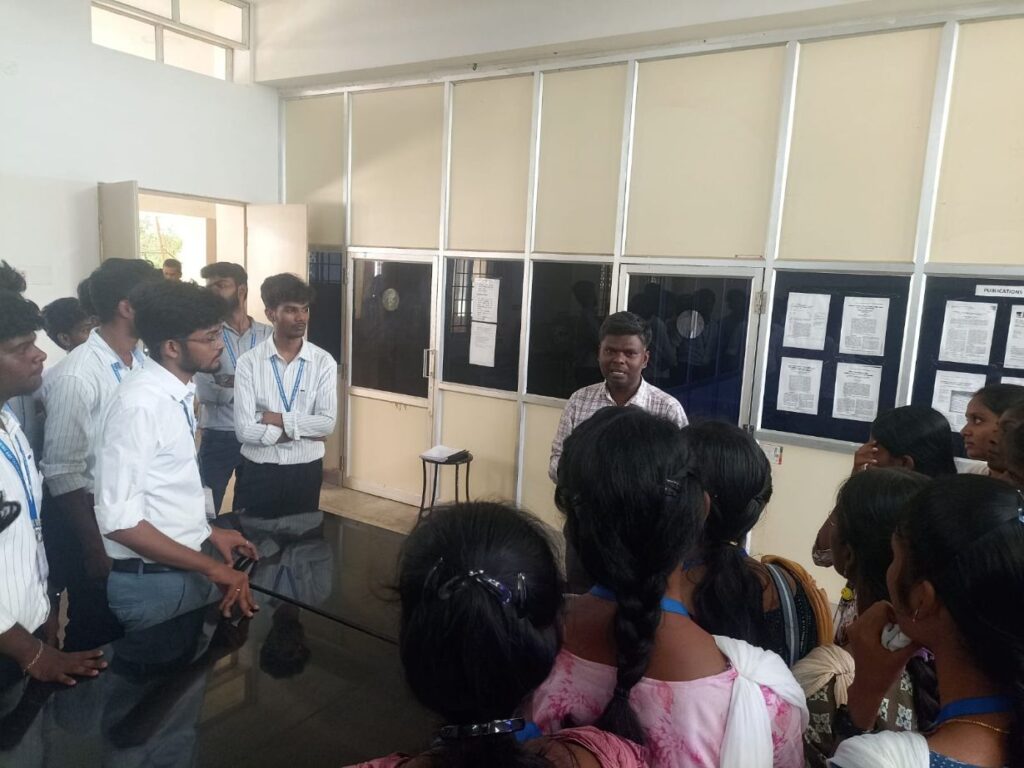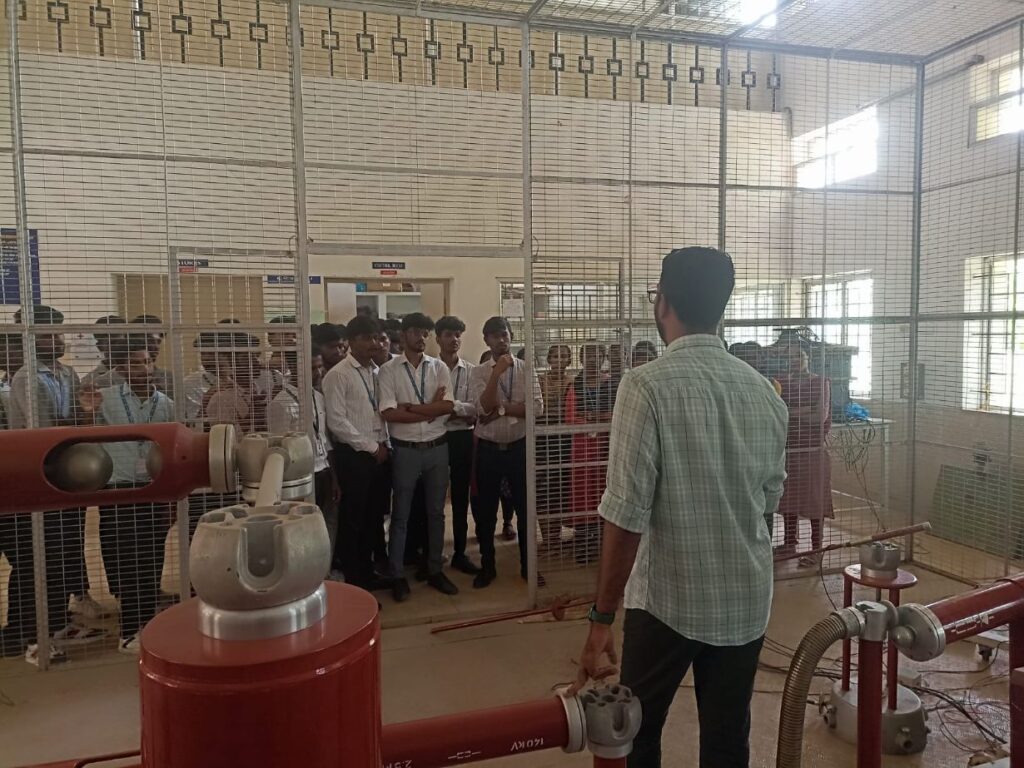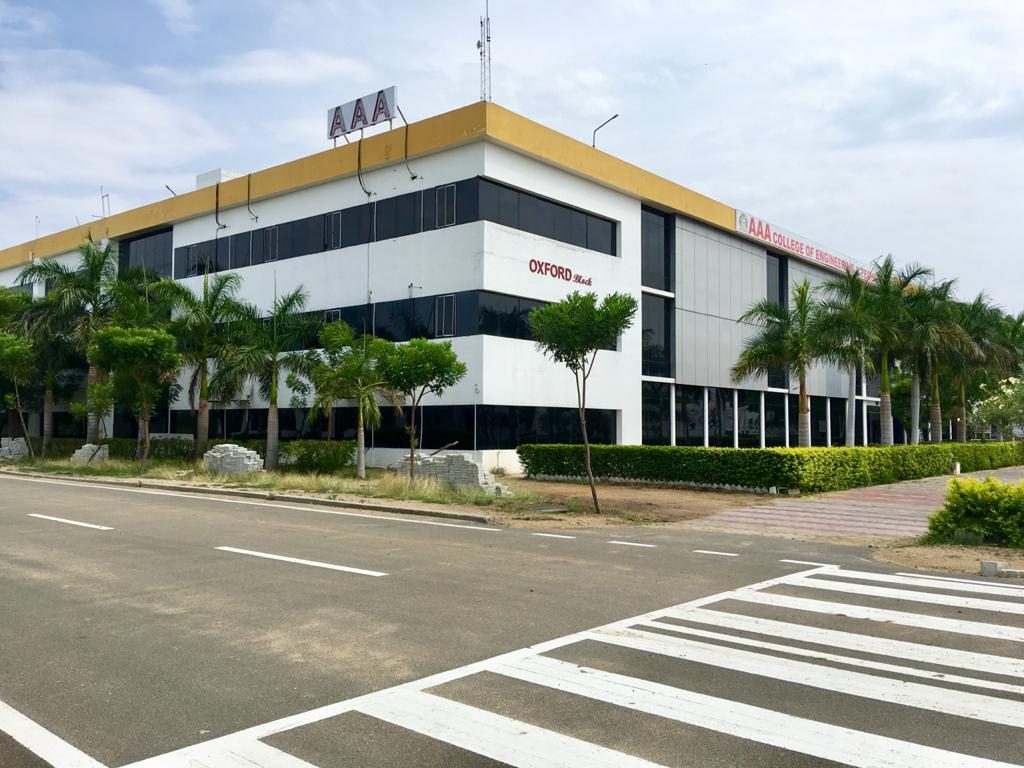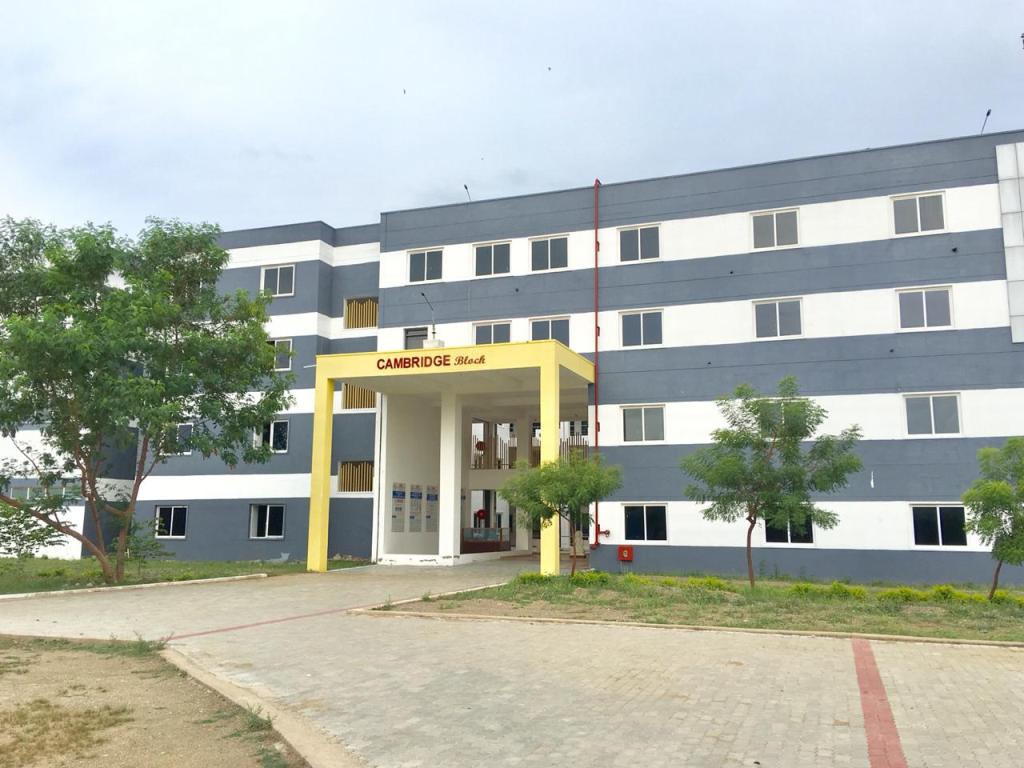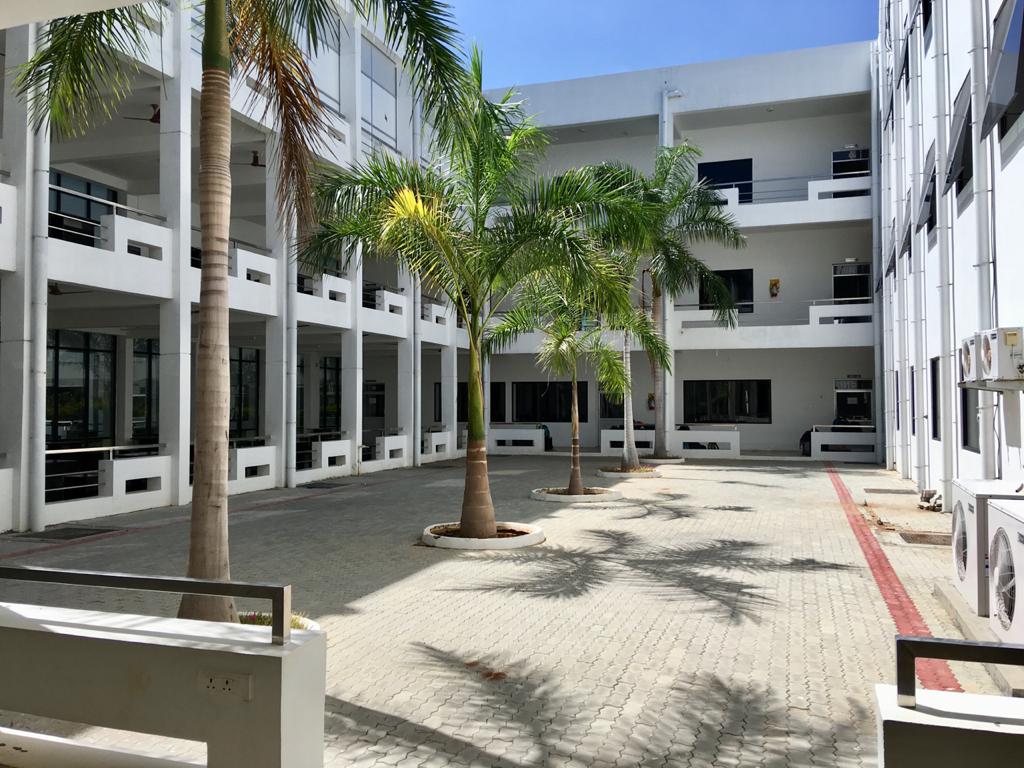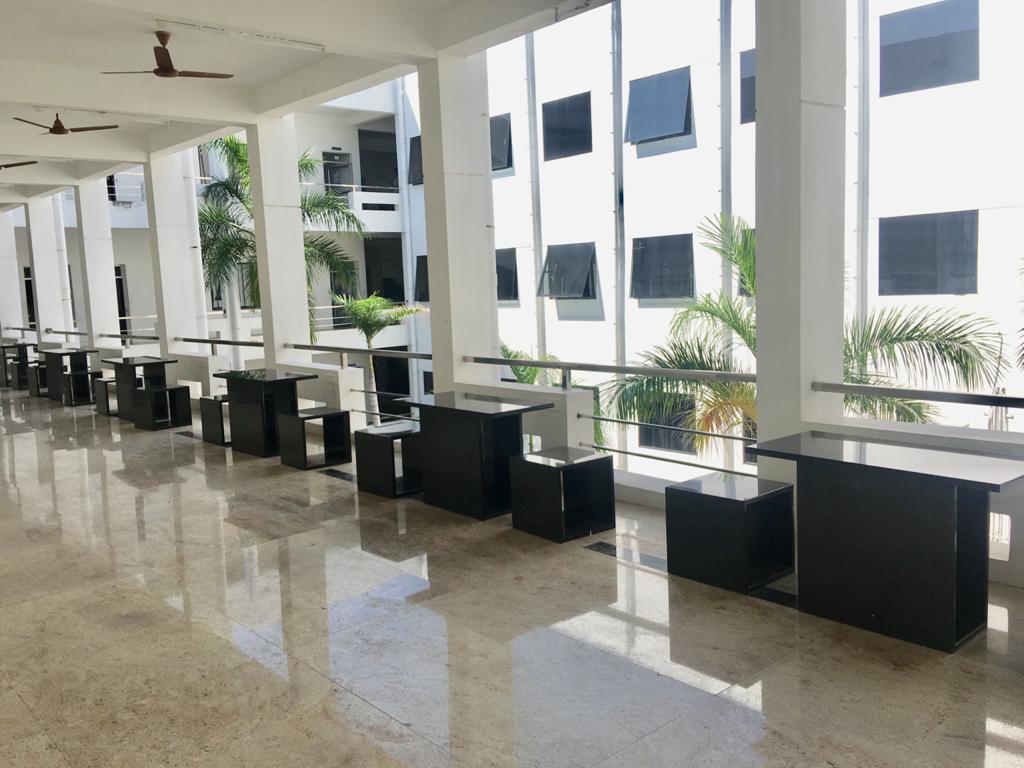A field visit was arranged on 24.10.2024 to National Engineering College, Kovilpatti for IV year students of Electrical and Electronics Engineering. 45 students along with faculty members Dr. M. Ramuvel, Associate Professor and Mr. R. Vinothkumar, Assistant Professor visited the campus. The field visit aimed to deepen the students’ understanding of high-voltage generation, testing, and measurement equipment, and to observe the advanced research activities in this specialized area. The objective of the visit was, to gain hands-on experience with high-voltage engineering equipment, understand safety protocols and practical challenges in high-voltage applications and observe the testing procedures of insulation and electrical components.
Upon the arrival at the High Voltage Engineering Laboratory, we were welcomed by Dr.M.Willjuice Iruthayarajan, Professor and Head of the Department, Dr. R. V. Maheswari, Professor and head of the laboratory, K. Kumar, Assistant Professor and Dr. P. Samuel Pakianathan, Assistant Professor. Mr. K. Kumar provided an overview of the laboratory’s setup, its purpose, and about the types of testing facilities available.
The students were given an orientation on the various equipments used, such as:
Impulse Generator: Used to create high-voltage pulses for testing insulation strength.
Transformers and Switchgear Testing Unit : Used to assess transformer insulation and switchgear performance under high voltage.
Partial Discharge Measurement System : This equipment measures the partial discharge in electrical insulations, an indicator of insulation integrity.
The laboratory is an active centre for research in Dielectric Materials, Insulation Systems, High Voltage and related phenomena. The laboratory also offers commercial testing and consultancy service. It has state-of-the-art facilities like 100kV AC, 140kV DC and 280kV Impulse Generation.
During the visit, the students observed the operation of the impulse generator and witnessed a demonstration of insulation testing on a transformer. The lab technicians demonstrated
- The process of creating impulse voltages.
- Techniques for measuring dielectric breakdown voltage.
- Methods of measuring partial discharge and corona formation in electrical equipment.
In the afternoon session, the team visited Liquid dielectrics laboratory. Dr. P. Samuel Pakianathan explained the testing procedure of liquid dielectrics. The laboratory is initially established under the Department of Science and Technology. The lab has the facility of Transformer oil testing kit, Viscosity meter, Flash and Fire point measurement.
OUTCOME OF THE VISIT:
- The field visit was highly educational and successful in achieving its objectives.
- The students gained valuable practical knowledge, and the visit helped to bridge the gap between the theoretical concepts and the practical applications.
- The students could observe the real time breakdown while insulating materials and flashover.
- This exposure will be instrumental in shaping the students’ understanding and encouraging them to pursue careers in power engineering and high-voltage research.
